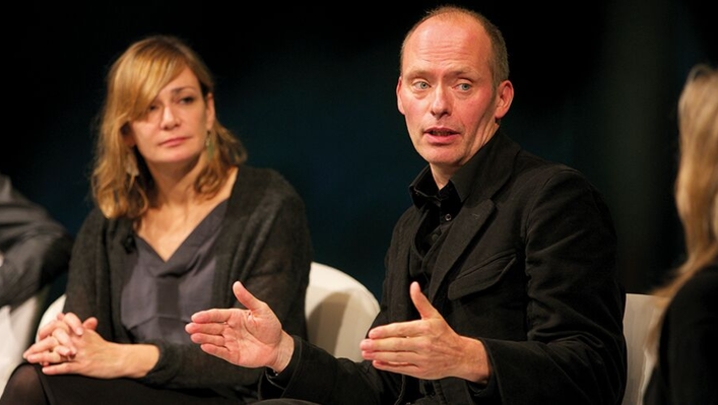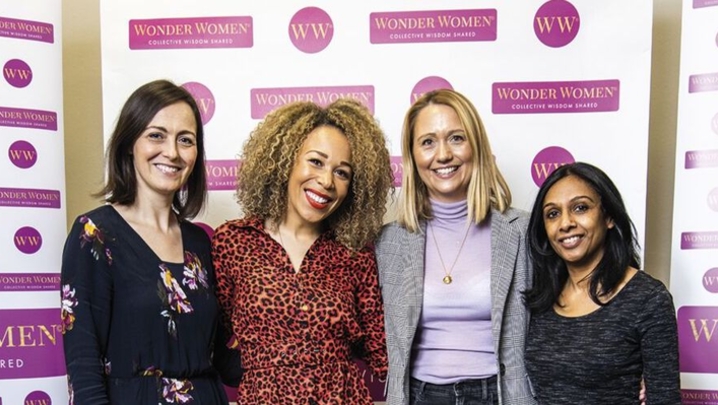As Casualty celebrates its 35th anniversary, Shilpa Ganatra diagnoses the secret of its longevity.
On a mild autumnal Saturday on 6 September 1986, the first week after the summer holidays, the nation collectively sat down in front of the telly. Viewers may have flicked between the four channels available, but most were curious about BBC One’s big new drama, Casualty.
Since the familiar, high-intensity theme tune played out that evening, those 1980s-tastic opening credits may have evolved into something more contemporary but, at its core, Casualty remains the same.
Now as then, Casualty holds a mirror up to British society and its treatment of the vulnerable, which helps to explain its longevity. “The fact that we have an NHS that embraces everybody makes Casualty different from other hospital shows around the world. Any Tom, Dick and Harry can walk through those sliding doors and be treated for whatever ailment they have,” says Deborah Sathe, executive producer for BBC Studios, which makes the series.
“For me, it’s about seeing humanity in all its glory at that moment of crisis, whether it’s a mother carrying her ill child, or a pile-up on the M1. It’s seeing ordinary people do extraordinary things, and extraordinary things happening to ordinary people.
“You have a collection of heroes akin to Marvel’s Avengers, who have to deal, day in, day out, with these crises and develop a shorthand, a gallows humour and a banter among them that makes them irresistible to watch.”
Casualty, winner of five RTS awards, was created by Jeremy Brock and Paul Unwin. They had worked together in the theatre but, remarkably, had never before done TV – although they were fans of US shows such as M*A*S*H and Hill Street Blues with their multi-strand storylines.
They were deeply concerned about what they regarded as the Thatcherite attacks on the health service. After their own experiences as NHS patients, they wanted to tease out the friction inherent in “the frontline in the battle for the soul of the NHS”, as they explained in a BBC blog published in 2011.
A decade later, the NHS is more of a political battleground than ever, but the show’s approach is subtle – there are pointers to the pressure the health service faces, but not enough that you could accuse the BBC of breaking any impartiality guidelines.
For Digital Spy’s soaps editor, Daniel Kilkelly, who began watching Casualty as a child in the 1990s, the show’s initial appeal lay in its stunts. “You can always rely on that unspoken guarantee that, when you tune into Casualty, you’re going to be in for a treat with some big on-screen spectacles,” he says. “I remember Casualty being part of the Saturday-night routine, alongside Noel’s House Party and The National Lottery Live.
“Over the years, it has stayed true to its roots, whereas other shows have fallen into the trap of making drastic changes that can sometimes alienate the audience. And now, unusually for a continuing drama, it’s a show that you can dip in and out of. With other soaps and continuing dramas, you can’t do that as easily, because the ongoing storylines are a lot heavier.
“But it is possible to not watch Casualty for a few months and then, if you happen to be home on a Saturday, you can tune in and enjoy the self-contained stories for what they are.”
Inevitably, other hospital TV dramas emerged in the years that followed Casualty’s launch: there was its spin-off, Holby City, of course, plus Stateside dramas such as ER, Chicago Hope and Grey’s Anatomy. But Casualty’s MO of being a relatable medical drama that leans towards social realism – with all the high-stakes pressure, gore and personal dynamics that this entails – has helped it become the longest-running prime-time medical drama in the world.
“When ER came along, which was an amped-up, thrilling and beautiful show, where people like George Clooney were doctors, it made Casualty look like an elderly auntie. Yet ER stopped in 2009 and Casualty continued,” says Jane Tranter, co-founder of Bad Wolf and a former BBC head of drama and Casualty script editor. “I think there’s something so utterly relatable and British about Casualty. When an audience looked at that world, they could compare it and relate it to their world.”
There’s another benefit to reflecting modern society: it allows the series to evolve naturally. “We’ve told the stories of refugees, the story of gender identity, the story of how cultural acceptance has evolved over the years, and covered new-fangled diseases. That’s what keeps the show fresh, because society is changing all the time, ergo, so does Casualty,” says Sathe.
More examples tumble out: a recent storyline focused on emotional coercion, with a man, nurse manager Jacob, as the victim. There’s a new, non-binary character filming in the studio at the time of writing. Last year’s Rose d’Or-nominated episode, which focused on Jade Lovall (played by Gabriella Leon), was a particularly progressive one.
Not only did it feature a main deaf character in Jade, but it was written by screenwriters Charlie Swinbourne and Sophie Woolley and had a director, (John Maidens), who are deaf, adding to the authenticity.
“Then, they didn’t do what a lot of other shows might and ignore the fact that Jade is deaf,” says Kilkelly. “The challenges that she faces appear in episodes quite regularly.”
The coronavirus episode, which won the latest of the show’s five Baftas, helps us remember why Casualty is a “national treasure”, as Tranter puts it. Telling the story of the pandemic through flashbacks, it emotively centred on the moments that defined the pandemic in hospitals: the invisible tidal wave rolling in from Italy, the exhaustion, the TikTok dances, the lack of PPE, the painful decisions about patients’ lives.
Says Kilkelly: “They quite rightly decided that they had to tell the story of how the emergency department had coped with coronavirus, and it was fantastic for the show to win a Bafta
in its 35th year.
“It was such an emotional episode because it featured the death of Noel, who was a fan favourite, and that shows how bold Casualty can be sometimes – it was an example of where the show didn’t hold back.
“There’s a brilliant line from Connie where she said, ‘The NHS was on its knees already, then we get hit with a pandemic and they expect us to perform miracles’. While the political element is toned down now, it is a good move when they bring in those real-life elements to it, and you see it as part of the wider world.”
The UK’s TV industry has also benefited from the talent that has staggered or been wheeled through Holby City Hospital’s emergency department doors, not least because it is filmed well away from London, in Cardiff (one of the reasons it has held its space in the schedules while Holby City, filmed in Elstree, is set to wind down next year). “The roll call for Casualty is quite nice,” notes Tranter.
Aside from herself, there is acting talent such as Academy award-winner Brenda Fricker and Robson Green. It also provided early breaks for the likes of Kate Winslet, Orlando Bloom and Daisy Ridley, as well as programme-making talent that includes Antonia Bird, Tony McHale, Catherine Morshead, Bill Gallagher, Daisy Coulam and casting director Catherine Willis, among many others.
The acclaim continues to roll in and, with its 35th anniversary special reinvigorating its fans while once again stretch-testing the formula, Casualty’s vitals are good – and it may well have the strength to take on Coronation Street, which recently marked its 60th anniversary, for longevity.
“Casualty is an emergency room that responds to the extraordinary needs of the citizens of this country – that’s never going to stop changing, or being entertaining or heart-warming,” says Sathe. “So why not give Corrie a run for its money? I’d like to try.”






